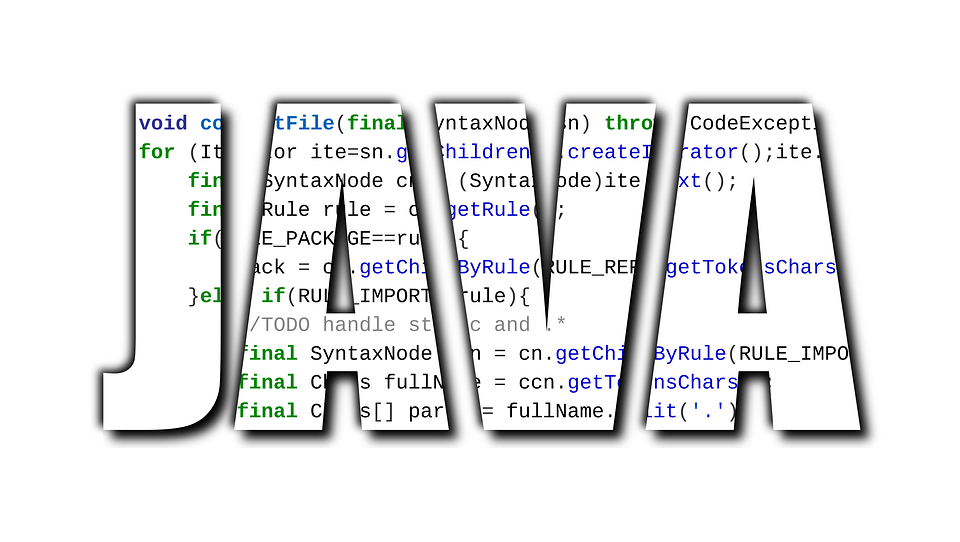Java trends 2019 (or where to use Java in 2019?)

Right now Java is the most popular programming language in the world, according to Tiobe. However, in the past 5 years its popularity has slightly decreased. Will it remain widely used in 2019? We’ll discover it in this article.
Java is 23 years old, and it still continues to evolve. Every new release includes a couple of new features and security updates. In 2019, we’re expecting two more releases – Java 12 in March and Java 13 in September.
So in which areas will Java be used this year?
It’s no secret that Java language is used pretty much everywhere. From the backend of large enterprise software to Android mobile apps and embedded systems. In 2019, this tendency will continue with a few new accents however.
Java language in web development
In 2019, Java will be widely used in web app development. Even more. In particular, you can use it to build large web applications and websites processing huge amounts of data.
The multithreading feature of Java programming language lets you handle hundreds of user requests at the same time. This is how it works: the lightweight processes called threads are executed at the same time, without overweighting the app. On the front-end, your app runs fast and seamlessly, no matter how large or complex it is.
Big data. 90% of all data was generated in the last 2 years. In 2019, we’ll need powerful tools like Java to process it. For instance, Facebook uses Java-based framework Apache Hadoop to store & analyze its huge amounts of data, including posts, images and videos.
E-commerce. Large online shopping websites like Amazon use Java language in their back-end development. And e-commerce market is predicted to grow further in 2019 and beyond. That’s why large industry players and middle-size companies will need Java technologies to build their complex web projects. Since Java is scalable and flexible, your online store will handle large numbers of load and you can extend your website with no problem when necessary.
Security targets. With the increasing risk of fraud, financial, banking and real estate agencies will use Java technologies to secure their web apps and software. Java has built-in security features like cryptography and access control to keep your internal data safe and prevent it from unauthorized access. By the way, Google also used Java in their back-end development.
Top Java web frameworks to use in 2019:
Spring MVC and Spring Boot
Spring MVC is a lightweight framework that allows building complex web applications of the enterprise level in an easy way. Spring MVC is divided into modules, and it also integrates with other frameworks like Struts or Hibernate.
Spring Boot is a tool based on Spring MVC framework, which you can use to avoid the manual configuration of your app and set it up more easily. Spring is often used for creating microservices architecture.
JSF
The core mission of this tool is to simplify the development of web-based user interfaces. JSF is highly useful for the teams with the lack of front-end development skills since it allows to build professional-looking websites with ready-made components.
Hibernate
This Java technology allows mapping Java classes to database objects. With its help, you can also avoid developer’s rework when moving from one database to another. So it’s useful if you’re likely to work with another database in the future.
Of course, these are just a few of popular Java frameworks that will be in use this year.
Java language in IoT development
In 2019, the IoT development will be on the rise and Java will play a major role in it. Java is highly portable. As a result, a developer can write the code on desktop and then move it to the smallest pieces of hardware using Java Virtual Machine – like chips and other IoT devices. Moreover, thanks to security features, Java fits the IoT systems development so well.
Java in mobile app development
The Android app market is predicted to grow 4 times stronger than iOS by 2020. And yes, Java will remain widely used in this domain too. Even though Kotlin has grown in popularity during the last year, it’s unlikely to replace Java in the nearest future. Most importantly, that’s because Android mobile apps on Java are lighter and run faster than Kotlin-based mobile apps. So, large corporations will likely use Java language to develop their mobile apps in the nearest future.
Conclusion
Finally, since Java has a rich set of libraries and tools, many companies will continue using it to build robust enterprise software according to their needs. With all of the above, it’s no surprise that the demand for Java programmers will remain high in 2019. To keep up with the latest Java trends, make sure to contact a trusted Java development company who will advise you on your particular project and provide tech experts for your needs.





